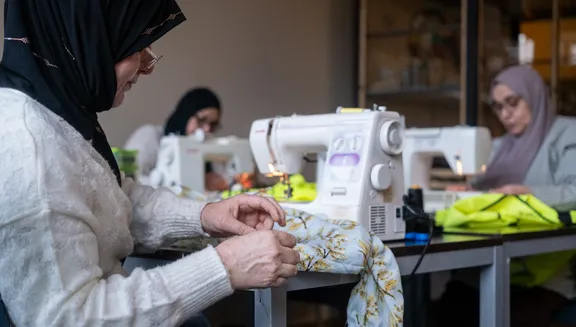
Socially inclusive hiring platforms
29 May 2024

Updated 30 August 2022
With infection rates low, vaccination coverage high and legal restrictions concerning COVID-19 no longer in place, it may seem to many as if the pandemic is over in the Netherlands. However, with the future uncertain and some people still vulnerable, advice is still in place for employers regarding the coronavirus.
Employers are responsible for the health and safety of their employees – even when working remotely.
If you don’t speak Dutch, consider asking a Dutch-speaking employee to help you keep up-to-date with the latest guidance: Useful English-language resources include the following:
- Business.gov.nl - for continually updated information for companies
- RIVM website - for updates on the pandemic in the Netherlands
- IND website - for issues around immigration.
We’ve used these and other resources to give an overview of best practices for employers.
While office working has returned, the Dutch government continues to instruct employers to make agreements with staff to allow working from home to continue, and employers to pay particular attention to staff who are vulnerable or concerned about their health.
If an employee has symptoms, they should stay home and do a test. If they test positive, they should self-isolate and, if possible, work from home. If your employee cannot work from home but must isolate, you must continue to pay them their wages. You cannot deduct leave hours unless you both agree to this. These all apply even if your employee is vaccinated and has had a booster.
Your employee is not obliged to share medical details with you, but you may ask your employee when they think they will be coming back to work.
You may not make it compulsory for your employees to be vaccinated. You may ask your employee if they have been vaccinated for a valid reason, e.g. if they work with vulnerable people, but they are not required to answer. If you know that your employee has not been vaccinated, you may not prohibit them from working in the workplace. Read more about rules on vaccination and work (website in Dutch).
While most travel restrictions no longer apply, most countries still require proof of vaccination to travel. It is therefore still advisable to check regulations and advice relating to the specific country of travel for your employee. A person can check what they need to prepare before they return to the Netherlands using this handy tool. If your employee was abroad for work reasons and cannot work from home during quarantine, you must continue to pay their wages. However, if an employee plans to travel for non-work reasons to a very high risk country it is their responsibility, in terms of time and costs, to follow any quarantine and testing requirements. For workers and visitors coming temporarily to the Netherlands, immigration measures are still often relaxed in special situations affected by the pandemic.
As always, it is recommended for everyone to wash hands regularly, keep 1.5 metres distance, and test regularly (self-tests can be bought at pharmacies and supermarkets). In addition, the RIVM continues to advise businesses to consider distance, hygiene and ventilation in their work spaces, as well as recommending particular care for vulnerable and concerned employees. It also offers a simple health checklist for screening customers and visitors.